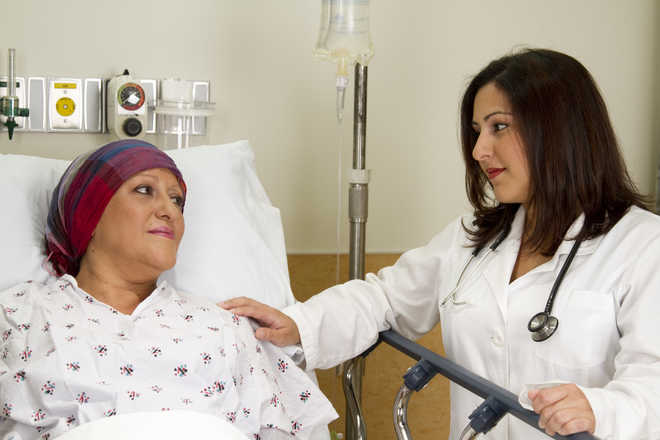
In safe hands: Cancer patients with depression can benefit from palliative care
Dr M Udaya Kumar Maiya
Of the non-communicable diseases affecting Indians today, cancer is perhaps one of the most feared and debilitating conditions. There has been an increase in the number of cancer cases in India with about 10 lakh new cases diagnosed with the disease every year. It is also one of the leading causes of mortality and responsible for about 7 lakh deaths every year in the country.
The diagnosis of cancer can be life-changing, causing considerable psychological and emotional stress to the patient and his/her family. While sadness may be an expected response to cancer diagnosis, stress and anxiety that go beyond the patient’s coping mechanism can result in a major depressive disorder.
Depression is, therefore, a major comorbidity in cancer patients with statistics indicating that more than 10 per cent of those with cancer fall into depression. Despite this, and the fact that depression in these patients is treatable, it is a significantly unrecognised comorbidity.
Any sadness that lasts for more than two weeks can be termed as clinical depression. It not only interferes with daily activities but can also impact the course of cancer treatment. Due to a lack of awareness, depression in cancer patients may be confused with low mood. It is, thus, imperative that the caregiver or family member is aware of the symptoms of depression.
These symptoms can include: ongoing sadness, feeling of extreme hopelessness and despair, lack of interest in daily activities, nervousness, insomnia, poor concentration, forgetfulness, irritability and agitation, loss of appetite or overeating, lack of energy and motivation, and suicidal thoughts.
Extreme depression can affect body systems and processes, pain control, and even the response of the body’s immune system to cancer treatment and therapy. All these can put the patient at an unfair advantage, and affect the overall quality of life for those with cancer, making recovery and management difficult.
Once the signs and symptoms of depression are recognised, it is imperative to consult the treating doctor on how to cope with it. Those with moderate-to-severe levels of depression can benefit with psycho-pharmacologic interventions. Studies indicate that antidepressants are safe and effective in treating depression and associated symptoms in cancer patients.
Psychotherapy
An essential aspect of managing depression in cancer patients is psychological therapy. It helps the patient in coping with the disease, lifestyle changes, financial status, and concerns about impending death if treatment does not work. It also addresses issues of dependency, disfigurement and disability.
Pharmacological interventions
Today, a combination of medication and psychotherapy is being used to treat cancer patients with depression. Antidepressants can not only improve certain symptoms of depression but can also eventually help in reclaiming the patient’s energy levels and interest in getting better. The choice of antidepressants would depend on factors such as: nature of the symptoms, associated medical problems in the patient, and side effects of the drug that are to be avoided.
Apart from this, palliative care is an approach that can improve the quality of life of patients and their families facing the problems associated with life-threatening illness, through prevention and relief of suffering by means of early identification, assessment and treatment of pain, and other problems — physical, psychosocial, and spiritual. Cancer patients with moderate-to-severe depression can accrue benefits from palliative care. It starts as supportive care at the time of diagnosis of life-threatening illness and continues as terminal care if the illness progresses until death of the patient.
Integrating all these approaches with home health-care can further enhance results. Such an approach allows a patient to recover in the comfort and security of their own home and can hasten the process of recovery from cancer-related depression. Family members can also be actively involved in the management of the patient, thus allowing for more flexibility.
Conclusion
Cancer can change a person’s life drastically. While the emotional stress can be overwhelming, if not treated on time, it can lead to severe depression and affect other treatment outcomes. It is, thus, important to be aware of the signs and symptoms, as this can help in managing depression in cancer patients in a timely manner, and improve their quality of life.
— The writer is an oncologist and medical director, Portea Medical, Bangalore



























